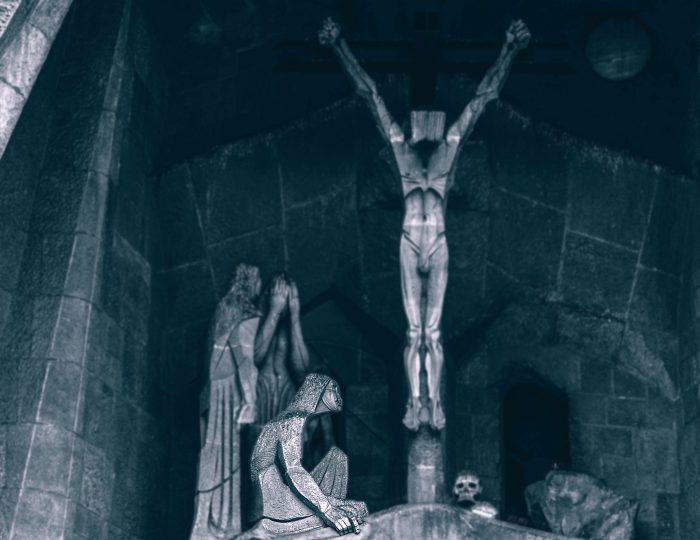Near the cross of Jesus stood his mother, his mother’s sister, Mary the wife of Clopas, and Mary Magdalene. When Jesus saw his mother there, and the disciple whom he loved standing nearby, he said to her, ‘Woman, here is your son,’ and to the disciple, ‘Here is your mother.’ From that time on, this disciple took her into his home.
John 19:25-27
It was these few lines from John’s Gospel that inspired Colm Tóibín’s play – and later novella – The Testament of Mary. Although it offers some controversial interpretations of the text, it does rightly recognise how traumatic it must have been for Mary to see her own son die before her eyes.
We know that Mary was confident in Jesus’ abilities from early on in his earthly ministry: at a wedding in Cana, when the wine ran out, Mary went straight to Jesus (John 2). Indeed, Mary had nurtured him as he grew from infant to child, had watched him pass into adolescence and mature into adulthood. Like any mother who has loved and raised a child, Mary would have known best what Jesus was like and what he was capable of.
And yet here she is now, looking on helplessly as her son is suspended and suffocating on a cross. Her son all grown up, Jesus was at the prime of his life. It ought to have been Mary’s joy to see it all; to see all her nurture, dedication, and hard work come to full fruition. But this privilege, it would seem, has been taken from her. Though the final chapters of John’s Gospel relate Jesus’ resurrection and appearance to his followers, we are not told whether Mary saw her son again; naturally we hope, for her sake, that she did.
What can we learn from Mary’s relationship with Jesus? In these few verses we catch a glimpse of the bond of love between mother and son, seeing how – even in physical agony – Jesus makes sure his mother will be cared for after his death. The mother of a man executed as a common criminal would usually be forgotten, left by the wayside, but Jesus makes certain that she is placed in a family and cared for in the same way that she has cared for him over his life.
This is how Jesus loves all those who believe in him and become children of God. And as followers of Jesus, we too are part of the ‘family of God’ and are called to embrace those the world has forgotten.
As we go about our usual routines this week, how might Jesus’ encounter with Mary encourage us to be more attentive to those around us? Who are those who lack attention, need care, and to whom we can show the love of Jesus?
Alex Rowe
Alex is a student at Durham University, and soon to begin graduate study in New Testament at Oxford. He blogs at The Coffeehouse Cleric.

